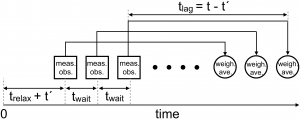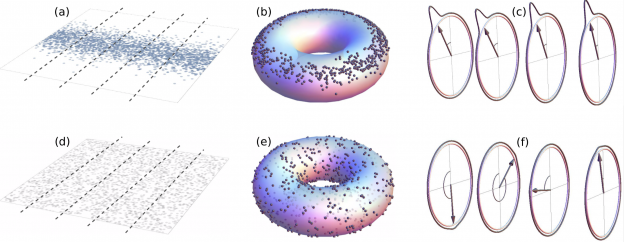C. Pérez-Espigares, P. I. Hurtado
 Interacting particle systems with many degrees of freedom may undergo phase transitions to sustain atypical fluctuations of dynamical observables such as the current or the activity. This leads in some cases to symmetry-broken space-time trajectories which enhance the probability of such events due to the emergence of ordered structures. Despite their conceptual and practical importance, these dynamical phase transitions (DPTs) at the trajectory level are difficult to characterize due to the low probability of their occurrence. However, during the last decade advanced computational techniques have been developed to measure rare events in simulations of many-particle systems that allow for the first time the direct observation and characterization of these DPTs. Here we review the application of a particular rare-event simulation technique, based on cloning Monte Carlo methods, to characterize DPTs in paradigmatic stochastic lattice gases. In particular, we describe in detail some tricks and tips of the trade, paying special attention to the measurement of order parameters capturing the physics of the different DPTs, as well as to the finite-size effects (both in the system size and number of clones) that affect the measurements. Overall, we provide a consistent picture of the phenomenology associated with DPTs and their measurement.
Interacting particle systems with many degrees of freedom may undergo phase transitions to sustain atypical fluctuations of dynamical observables such as the current or the activity. This leads in some cases to symmetry-broken space-time trajectories which enhance the probability of such events due to the emergence of ordered structures. Despite their conceptual and practical importance, these dynamical phase transitions (DPTs) at the trajectory level are difficult to characterize due to the low probability of their occurrence. However, during the last decade advanced computational techniques have been developed to measure rare events in simulations of many-particle systems that allow for the first time the direct observation and characterization of these DPTs. Here we review the application of a particular rare-event simulation technique, based on cloning Monte Carlo methods, to characterize DPTs in paradigmatic stochastic lattice gases. In particular, we describe in detail some tricks and tips of the trade, paying special attention to the measurement of order parameters capturing the physics of the different DPTs, as well as to the finite-size effects (both in the system size and number of clones) that affect the measurements. Overall, we provide a consistent picture of the phenomenology associated with DPTs and their measurement.

